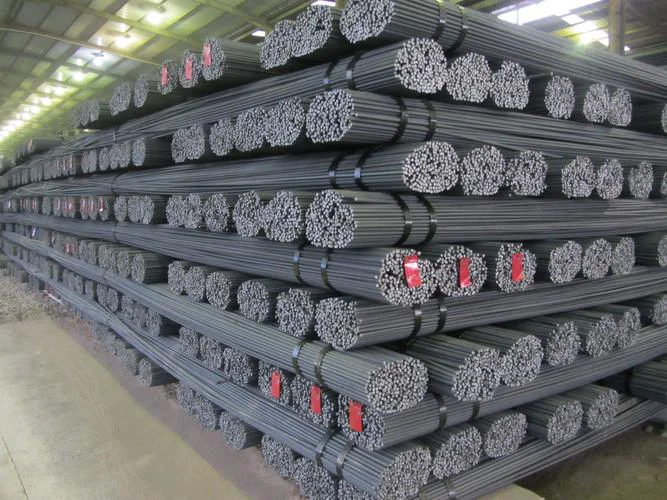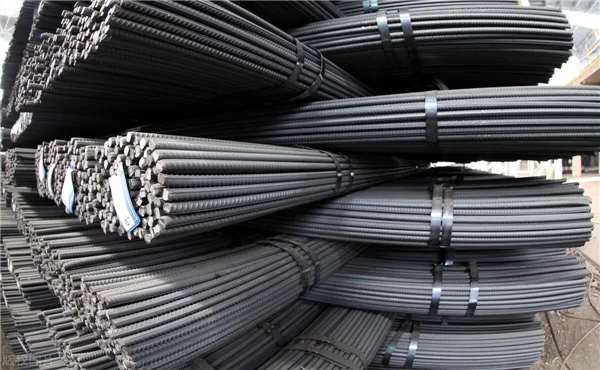Steel rebar is a popularly used reinforcing bar and is one of the highly salient elements within the building industry. It gives strength and durability to the concrete in structures. However, it is quite relevant to select appropriate grades of rebars and also the knowledge of putting the right type at the right place concerning structural integrity.
This review will discuss best practices and valuable tips for different steel rebar grades: key points involving the choice of steel rebar and applications in the reinforcing of concrete. The introduction will be extended to key characteristics of one outstanding supplier: Qingdao Sunrise New Material Co., Ltd.
The Function of Steel Rebar for Reinforcement on Concrete
Steel rebar has a significantly high usage on reinforced concrete due to its high tensile strength, the strength which outweighs the intrinsic fragility of the concrete in tension. Because of this fact, it has become an essential material in most buildings, bridges, highways, dams, and other works. Concrete rebar may be provided in round, ribbed, or torsion bars; each type manufactured for specific purposes. The ribbed or deformed types offer better bonding with concrete, ensuring that the steel and concrete will act together as a single unit.
Rebar can vary in size, grade, and material depending on what type of project it is being used for. Understanding the differences will help in knowing what to use when reinforcement will be required.
Several Grades of Steel Rebar and Uses
Steel rebar is available in a range of grades, each classified by the yield strength of the material. Yield strength is that point where a material starts to deform permanently. The higher the grade number, the higher the yield strength, and this directly affects the structural integrity and load-bearing capacity of the concrete.
Grade 40 Steel Rebar (Gr.40)
The Grade 40 steel rebar belonged to one of the most general applications for conventional reinforcement of concrete and had a yield strength of 40,000 psi. Most of the time, this is observed being put into small or less-consuming jobs in the low-rise building category, residential or maybe light commercial category. One advantage coming with Gr. Advantages are that 40 rebar has among others is ease of welding and forming, especially in those applications requiring sophisticated fabrication.
Grade 60 Steel Rebar. (Gr.60)
Compared with Grade 40 steel rebar, Grade 60 steel is stronger, due to its greater yield strength which is 60,000 psi; this material kind is the most common standard and usable from medium to giant construction projects where bridges, roads, and different forms of commercial buildings could come onto the scene of construction. Gr. 60, due to its better yield strength compared with its predecessor, is able to bear higher magnitude of stress; hence, it would be more durable for structures needing to bear greater loads. It has particular uses in conditions that demand greater resistance to both bending and torsion, having a balance in strength and flexibility.
Grade 75 Steel Rebar (Gr. 75)
Grade 75 steel rebar is another type of high-strength grade. It has a yield strength of 75,000 psi. It finds its application in those projects that require superior tensile strength, such as high-rise buildings, dams, and large-scale infrastructure projects. Since it has a higher yield strength, it is able to support heavier loads; hence, it is ideal for large concrete pours and projects that have high stresses. Gr. 75 steel rebar is also favored in seismic zones where concrete structures need to withstand dynamic loads.
Qingdao Sunrise New Material Co., Ltd., a prominent supplier of high-quality steel and non-ferrous metal products, offers Gr.75 Steel Rebar that meets international standards such as ASTM A615/A615M and GB1449.2. Manufactured using state-of-the-art hot-rolling processes, this rebar ensures superior performance in concrete reinforcement, especially for structures subjected to heavy loads or environmental stress. The Gr.75 Steel Rebar manufactured by Sunrise New Material comes in different diameters from 6mm to 50mm for versatility in the application of these rebars to different areas.
Key Tips for Using Steel Rebar in Concrete
1. Proper Rebar Placement and Spacing
Correct positioning and spacing of reinforcement is important if the concrete is to achieve maximum strength. The rebars should be set at certain distances inside the concrete termed as cover. Cover is the distance between the outer surface of the rebar and outside of the concrete. Where there is inadequate cover, there is a chance of corrosion, which will weaken the reinforcement and affect the integrity of the concrete.
The American Concrete Institute recommends at least 1.5 inches of cover for rebar, but this will vary with environmental exposure and particular grades of rebar. In systems that are exposed to moisture or chemicals-as in bridges or seafront buildings-thicker covers will be needed to avoid corrosion.
2. Correct Methods for Cutting and Bending Rebar
Rebar should be cut and bent as per the requirement of the job. Poor bending or cutting diminishes the strength of rebar; hence, the material will lose its effectiveness in use as reinforcement. Over-bending or causing any crack in the rebar can reduce its strength.
Most of the rebars should be bent by ways such as cold bending by ASTM A615 to retain their strength and integrity. In addition to that, during cutting of rebar, the dimensions should be to size and no deformation must occur.
3. Tying and Securing Rebar
Bars shall be tied to hold rebar position during concrete pour. Rebar shall be tied at all intersection points from each other to resist shifting and/ or movement of the rebar. Ties shall be made from rust resistant wire that will not deteriorate through service life to allow the rebar to shift in the concrete.
Ties in seismic regions should be designed to resist dynamic forces. The ties should, therefore, securely hold the rebar in place to avoid shifting or displacement when under stress as a way of enabling the reinforcement to work effectively in resisting tension, compression, and shear forces.
4. Use of Corrosion-Resistant Rebar in Aggressive Environments
For extremely poor environmental conditions, such as marine or industrial applications, rebars resistant to corrosion are needed. The projects of this type are provided with the application of epoxy-coated rebar or stainless steel rebar to protect the reinforcement from the effect of corrosion and increase service life in a concrete structure.
In fact, with the corrosion of steel rebar, the deterioration of the concrete largely takes place in sea coasts and highly industrial areas, according to the study taken up by the American Society of Civil Engineers. On the other hand, however, the application of corrosion-resistant rebar as provided by the superior class of Gr.75 rebar at Qingdao Sunrise New Material Co., Ltd.-would be able to enable greater longevity of structures in concrete by cutting down expenditure on their upkeep.
Why Choose Qingdao Sunrise New Material Co., Ltd. for Steel Rebar?
If one is looking to supply superior quality steel rebars for reinforcement in concrete, then he should look up to Qingdao Sunrise New Material Co., Ltd. for the same. The company has a gamut of Gr.40, Gr.60, and Gr.75 Steel Rebar processed as per international specifications like ASTM A615/A615M and GB1449.2 that shall help in meeting the required structural strength in every single construction project.
With a strong network of supply chain, partnership with leading steel mills, and an efficient solution for warehousing, Qingdao Sunrise New Material Co., Ltd. has ensured on-time delivery at the best competitive prices to businesses all over the world. From a small-scale residential building to an infrastructure project, the Gr.75 Steel Rebar offered by them will surely provide optimal performance, durability, and long-lasting strength to the concrete structure.
Conclusion
Reinforcement with steel has a very vital role in giving strength, durability, and stability to concrete in case of different actions. Selection of appropriate grade, handling, fixation, and anti-corrosive treatment surely promise desired performance from your concrete reinforcement.
Cooperation with Qingdao Sunrise New Material Co., Ltd. will guarantee you quality and compliant Gr.75 Steel Rebar, together with professional support for your projects. Its reliable, durable, and cost-effective rebar products help businesses meet the standards of their respective industries while making sure that structures will last and be safe.
Using steel rebar rightly and supplying it from a trusted supplier, your concrete projects will stand the test of time and grow stronger, long-lasting.








